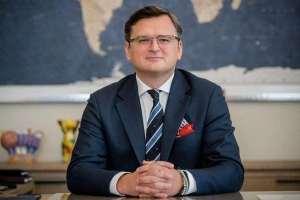Judge Denisa-Angelica Stănişor and prosecutor Emilia Ion were elected, yesterday, in the positions of president and vice-president of the Superior Council of the Magistracy for next year, the mandate of the new leadership will start on January 7, 2024, it was transmitted in a press release press, the Office of Public Information and Mass Media Relations within the CSM.
According to the management projects submitted by the two magistrates, both the courts and the prosecutor's offices face a high shortage of personnel. If in her project Denisa Stănişor does not provide figures regarding this lack of personnel among judges, the future vice-president of the CSM - Emilia Ion - points out: "Regarding the human resources available to the prosecution units, at the beginning of November 2023 there was a deficit of 417 prosecutors for the 1,760 enforcement positions and 274 prosecutors for the 484 management positions, the degree of employment being 68.84% in non-specialized prosecutor's offices. It should be emphasized that 76 prosecutor's offices register a degree of occupation of prosecutor positions of 50% or less. Among them are 11 prosecutor's offices attached to the courts that have jurisdiction over, among other things, serious crimes against life, tax evasion crimes, money laundering and petty corruption crimes. Also, 25 prosecutor's offices attached to the judges and attached to the courts operate with only one titular prosecutor".
The new vice-president of the CSM draws attention to the fact that the problem of the shortage of prosecutors also affects the filling of vacancies within the specialized prosecution units, the Judicial Inspection and the technical apparatus of the Superior Council of Magistracy.
Another problem identified by the prosecutor Emilia Ion is related to the space in which the magistrates of the prosecutor's offices carry out their activity.
Ms. Emilia Ion states in her management project: "From the point of view of the working conditions in which they operate, it is necessary to note that the public prosecutor's offices located within the radius of the Municipality of Bucharest are in the situation of occupying inappropriate spaces, not adapted to the huge volume of activity registered, being blocked by the existence of a large project to build a complex intended for institutions in the judicial field, initiated several years ago, but whose realization is not in sight".
In the x-ray taken of the judiciary in our country by the future vice-president of the CSM, it is also shown: "Last but not least, the judicial system in Romania is affected by a serious problem of trust and image. This year we have witnessed a systematic attack by repeatedly releasing unreal or partially true information into the public space, apparently provided by institutions of the Romanian state but not assumed by them. Thus, the body of magistrates was presented, in public debates, as a category of individuals who receive salaries, pensions and other undeserved benefits, which they granted themselves and which lead to the draining of budgetary resources. The judicial system was blamed for the consequences of normative acts that it did not elaborate and adopt. Aspects related to the huge volume of activity faced by the courts and prosecutors' offices, the legislative inconsistency and the large number of unconstitutional decisions that greatly increase the risk of professional errors, the very difficult working conditions in which judges and prosecutors carry out their work, have been covered up. , mental overwork, heavy wear and tear, social constraints generated by the profession's incompatibilities and prohibitions. The periodic re-discussion and recurrent contestation in the last period of time of the issues related to the status of magistrates have generated fears related to the risk of losing some guarantees of independence, without which their constitutional role could no longer be fulfilled. Under these conditions, the situation of human resources, already in a state of instability, has worsened due to the massive retirement of experienced judges and prosecutors. Also, the effects of this rhetoric on entry into the profession are to be evaluated, there is a fear that they will lead to a decrease in its attractiveness for potential candidates for admission to the magistracy/INM. Confidence in the judiciary was also affected by the apparent reduction in the ability to fulfill its role in Romanian society, the judicial system settling, often unfairly, the lack, incoherence or unconstitutionality of the legislative instruments with which it must operate in order to fulfill its assigned role, although the responsibility legislation belongs to other powers of the state".
That is why both the future president of the CSM - Denisa Stănişor, and the future the vice-president - Emilia Ion believes that the press, citizens and the political factor must understand that the recognition of a certain salary level and service pension for magistrates is not a privilege, but is objectively justified and constantly established, both in international reference documents, as well as in the jurisprudence of the Constitutional Court, considering the importance of the role of judges and prosecutors in defending the rule of law and the specifics of the activity of judges and prosecutors, which imposes on them the strictest obligations and prohibitions, as well as increased responsibilities and risks that do not they are found in other professional categories, thus constituting a partial compensation of the inconveniences resulting from the rigor of their special status.
















































